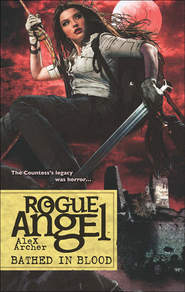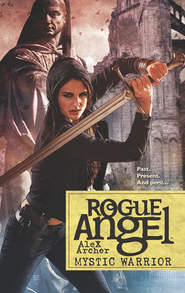По всем вопросам обращайтесь на: info@litportal.ru
(©) 2003-2024.
✖
The Spirit Banner
Автор
Год написания книги
2019
Настройки чтения
Размер шрифта
Высота строк
Поля
Chapter 9
Chapter 10
Chapter 11
Chapter 12
Chapter 13
Chapter 14
Chapter 15
Chapter 16
Chapter 17
Chapter 18
Chapter 19
Chapter 20
Chapter 21
Chapter 22
Chapter 23
Chapter 24
Chapter 25
Chapter 26
Chapter 27
Chapter 28
Chapter 29
Chapter 30
Chapter 31
Chapter 32
Chapter 33
Chapter 34
Chapter 35
Chapter 36
Chapter 37
Chapter 38
Chapter 39
Chapter 40
Chapter 41
Chapter 42
Chapter 43
Chapter 44
1
Mongolia
1245
Father Michael Curran, Special Vatican Envoy from His Holiness the Pope Innocent IV to the People of the Felt Walls, stared at the waves of oncoming riders and did what he could to keep the fear from showing on his face.
Not that there wasn’t good reason to be afraid. They were at least three days’ hard ride from Karakorum, where Guyuk, the grandson of Genghis Khan and the current ruler of the Mongol Empire, held court over his subjects. In the years since the death of the Great Khan, the empire had fractured. More and more tribes were returning to the old ways, fighting and competing against one another. The Naimans were one such group and Curran’s party was deep in a contested area that the Naimans claimed as their own. The distance from the capital meant that no one was going to come charging in to save them. To make matters even worse, the honor guard that Guyuk had sent with Curran for this trip into the Hentiyn Nuruu Mountains numbered less than thirty men, while the Naiman warriors currently charging their position appeared to number in the hundreds.
As the enemy swept forward, Curran could see that each man stood high in the stirrups, guiding his mountain pony with his knees, leaving his hands free to use his bow with the unerring accuracy that had made the Mongol army so feared. True, these were not the famed warriors of the Great Khan—just a lesser khan’s raiding party—but he knew they were deadly just the same. The thunder of their horses’ hooves mixed with the screeching wind that whipped across the open plain, and the priest no longer had to wonder what hell might sound like. Now he knew, beyond the shadow of a doubt. Hell was the uncanny silence as the enemy thundered toward them. Hell was the thrumming of the enemy’s arrows as they filled the sky above him, so thick that for a moment he lost sight of the sun itself. Hell was the thump of the shafts as they met leather armor and human flesh. Hell was the cry of the injured and the dying as they fell into the snow around him.
The Naimans harbored years of resentment against the unification brought to the plains by the army of Genghis Khan some fifty years before. They had caught the small group in the open, crossing a wide valley between two separate mountain peaks, leaving them with few places to run and little to use as cover of any sort. Curran had to admit to himself that it was a marvelous piece of strategic planning. Volke, their group’s leader, had been too confident in his belief that no one would dare to attack a party under Guyuk’s protection. But the harsh winter and the lure of overwhelming odds had apparently filled the enemy with daring. Curran knew the old adage usually held true: desperate men will do desperate things.
Having been forced into a desperate move, it now seemed that this group of raiders was determined to make certain that no survivors were left behind to report their audacity to the ruling khan.
Volke shouted something in Mongolian, but the wind whipped his words away before Curran could make sense of them. It didn’t matter, though; they hadn’t been directed at him, anyway, but at the other Mongol warriors in their small group. As one, the soldiers around him wheeled about and sent their sturdy ponies charging for the mountain pass they’d emerged from a half hour before. The priest would have been left behind if one of the warriors hadn’t snatched the reins of Curran’s horse out of his hands as he thundered by, forcing him to follow suit.
As they raced away, Curran fought to remember the man’s name.
Tamaton?
Tanguyuk?
Tamarak!
That was it. Tamarak was one of the older, experienced warriors assigned to the expedition by the khan himself and ordered to personally see to the safety of the envoy. Curran had resented it at first, seeing Tamarak’s presence as a sign that the Mongols still did not trust him. But now he was thankful to have the man at his side.











